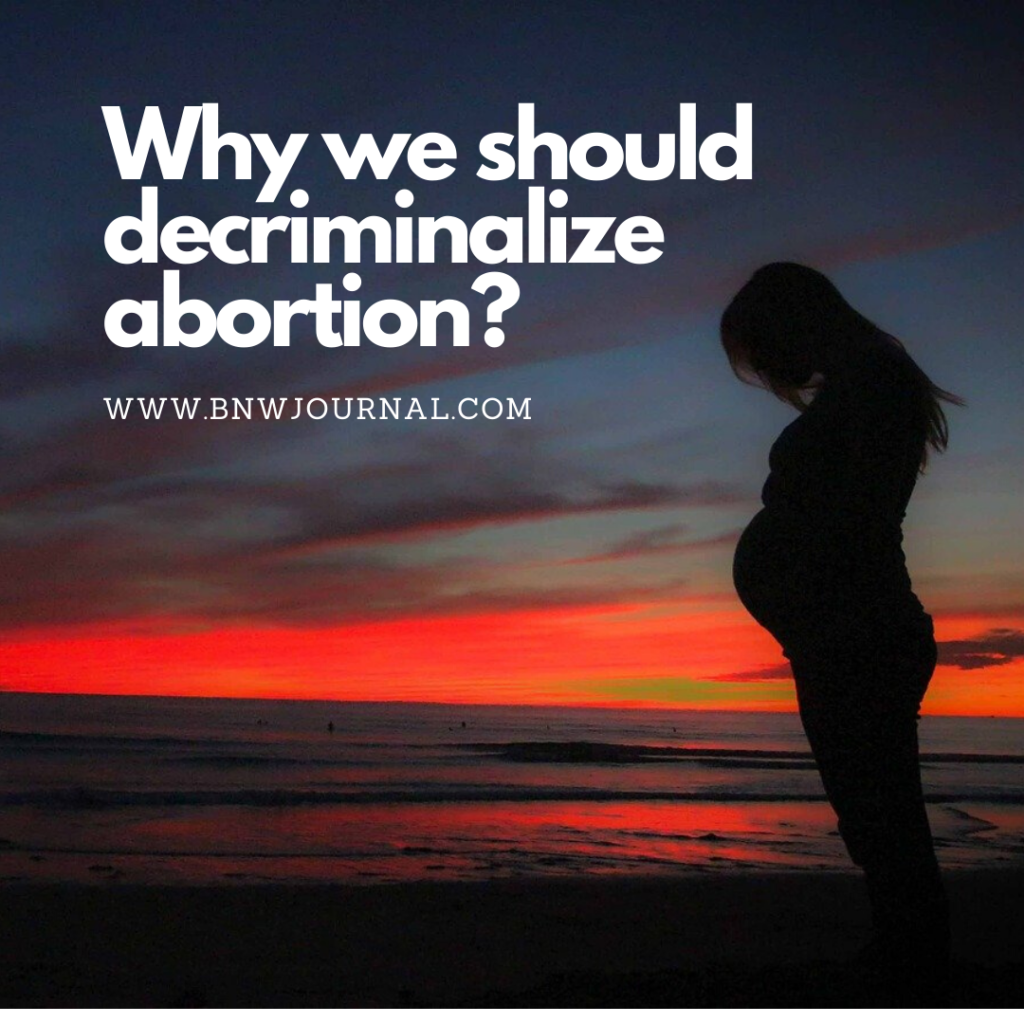![]()
Introduction
In the course of this article, we discuss about the criminalization of abortion, with reference to specific countries, where the law of the land is, pretty much, archaic akin to the contemporaries. We would keep highlighting the fact that why decriminalization is significant in present times and what we can do about it.

Let us start with one of the first questions which spring to our mind, when we are dealing with such complex issues.
What is the criminalization of abortion?
Criminalization of abortion means when the state put various penalizing laws to govern the non- performance of abortion by any woman. In this procedure, somewhere, women are force to withstand unregulate and risky procedures, which could keep her reproductive health at risk. It is also concern with many problems like public health, social justice, ethics, etc. In some countries, both the woman and the person who performs the procedure of abortion is penalize. Whereas, in some, it is only the woman who is punished for the same.
According to a report by Women on Waves, approximately 25% of the world’s population lives in countries with; “highly restrictive abortion laws”. That is, laws which either completely ban abortion, or allow it only to save the mother’s life. This category of countries includes most countries in Latin America. Most countries of Middle East and North Africa. Approximately half of the countries of Africa, seven countries in the Asia-Pacific region, as well as Malta in Europe.
WHO & the world
The World Health Organization recognizes that criminalizing abortion compels women to risk their lives and health by seeking out unsafe abortion services.
Conversely, access to safe and legal abortion to women is a human right; acknowledged worldwide, has more to do with the right to control her own body, plan her own family and determine her life course. This obsolete way of criminalizing a women’s right to choose is a jeering of the equal status accorded to women in our society. This is a striking example of discrimination against women and heeding to the stigma attached to the concept of abortion.
Twenty-six countries out of the world fall within the category where abortion is not permitted under any circumstances, including when the woman’s life and health are at risk. Five percent women of reproductive age live in countries that prohibit abortion altogether. 90 million women of reproductive age live in countries with these laws.
The imperative to decriminalize abortion is diaphanous. But still we need to resonate with the rationale behind this.
These are the 10 causes to decriminalize abortion.
(1) It is outmoded, juxtaposition to modern day’s laws.
(2) It is humiliating to women’s own identity.
(3) It is prejudiced towards women.
(4) It is at odds with the fundamental human rights and principles.
(5) The punishment is entirely unfair.
(6) The restyling of public opinion since the 1960s is a huge factor.
(7) Abortion is a fact of life.
(8) It prevents the best clinical practice.
(9) It put doctors off caring for women.
(10) Removing it from criminal law will not make any difference in the number of abortions.
Putting off this paternalistic approach is the prerequisite for the development of the society in the direction of a liberal perspective. Without the ability to control their fertility, women would have not achieved the level of educational and workplace equality that younger generations can rightly take for granted. Abortion cannot solve all the problems of sexual equality; but without the ability to exercise reproductive choice, women have no hope of planning their life course. It is entirely inappropriate that a procedure which has underpinned such enormous and beneficial social change should sit within criminal law.
Conclusion
Any sort of intervention to compel a woman to undergo an abortion against her wishes is nowhere to be justified. Besides, being a right to choose, it is even based on religious, emotional, political, and personal morals, for some. It all comes down to a variety of upbringings, ethics, religious backgrounds, political alignments, and other attributes that play into forming opinions.
We believe abortion should be dictated by the same resilient regulatory and ethical frameworks which govern all other medical procedures. In the 21st century, we should be trusting women to make their own decisions about their pregnancies, and removing the threat of prosecution from those healthcare professionals providing women with the services and support they need.



0 Comments